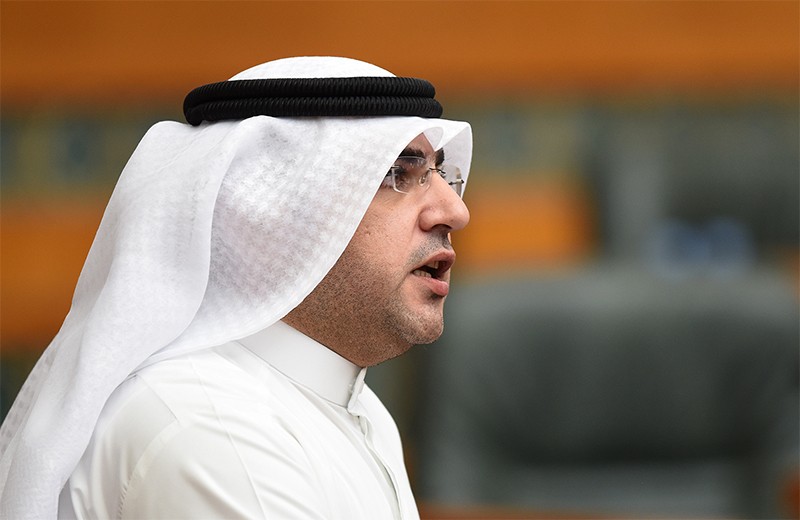01/02/2023
01/02/2023
KUWAIT CITY, Feb 1: MP Abdulkareem Al-Kandari asked Minister of Justice, Awqaf and Islamic Affairs and Minister of State for Nazaha (Integrity) Enhancement Abdulaziz Majid Al-Majid if Kuwait Anti-Corruption Authority (Nazaha) received reports about the corruption of the authority’s staff, action taken if the response is in the affirmative, if the authority received the statements of assets and liabilities of all individuals covered by Nazaha Law, if the authority reviewed these statements to ensure there are no violations as per Article 22 of the law, if the chairman and members the authority’s Board of Trustees met the conditions stated in articles seven and 16 of the law including the prohibition to engage in commercial activities while working in the authority, and action taken in case they committed violations.
Commenting on the statement of Nazaha that the country’s ranking in the recent Corruption Perceptions Index went down four notches, Al-Kandari asserted this is the expected result of granting exceptional pension to erring senior officials who resigned, instead of questioning them; as well as the exemption of senior officials from the laws on combating corruption.
He said Nazaha seems content with merely informing the people about the country’s decline in the Corruption Perceptions Index. He added the senior officials at Nazaha should have resigned because of their failure to carry out their tasks.

Meanwhile, Al-Kandari reacted to the claim of the chairman of Kuwait Chamber of Commerce and Industry (KCCI) that the chamber has been the subject of parliamentary attacks. He clarified this is not true; asserting that the lawmakers, who represent the people of Kuwait, are just trying to minimize the chamber’s control over public institutions. He said the main objective of the National Assembly is to put KCCI in a legitimate position, away from political decisions just like other public benefit organizations. In another development, MP Hani Shams has proposed the recruitment of Kuwaitis who hold petroleum or oil degrees; considering the country depends on oil production, which constitutes almost 90 percent of national income. He pointed out that Kuwait grants local and international scholarships to Kuwaitis who want to pursue higher studies in the field of petroleum or oil; hence, it is unacceptable that there are no job opportunities for them. He also touched on what he regards as another problem – the difficult exams given to applicants, urging Minister of Oil Bader Al-Mullah to revise the exam questions. He argued the problem lies in the exam questions, since many of those who failed graduated from reputable international universities. He suggested organizing training courses for the applicants, after which they will take the exams and all those who pass should be appointed at Kuwait National Petroleum Corporation (KNPC). “If there are no job opportunities for them, the Ministry of Higher Education should stop offering this specialization for high school graduates in order to stop the accumulation of graduates on the employment waiting list,” he added; wondering about the lack of job opportunities for Kuwaiti graduates, while expatriates occupy most of the jobs in the oil sector.
In addition, MP Khalid Al-Omaira submitted a bill on preventing financing and banking institutions from practicing usury. He proposed the formation of a supreme council for monitoring the activities of these institutions and giving Islamic legal advice as per the recommendation of the finance minister. The council will be under the government and its tasks include monitoring banking and financing procedures and giving legal advice according to Islamic Sharia. The council shall lay down the executive regulations in cooperation with the Central Bank of Kuwait.
Financial and banking institutions proven to be practicing usury will be given a grace period of one year starting from the publication of this bill in Kuwait Gazette to modify their status and switch to the new system. The institutions covered by the bill include the Central Bank of Kuwait, government financial portfolios, national banks, branches of foreign banks, financing and investment companies, financial brokerage companies, money exchange companies and insurance companies. By Saeed Mahmoud Saleh Arab Times Staff


